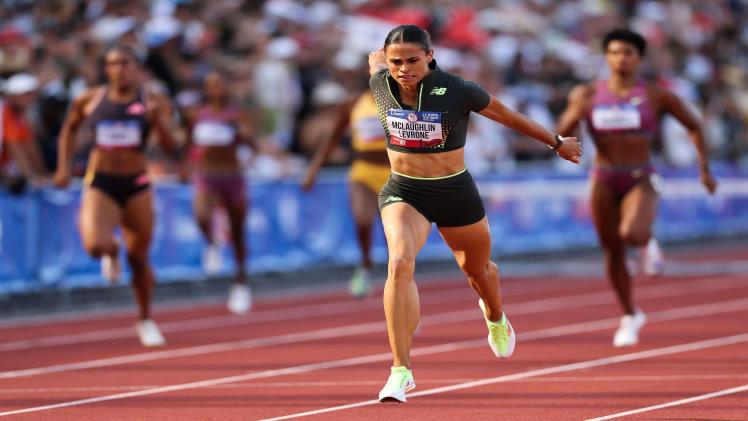The Olympic Games are the pinnacle of athletic achievement—an arena where the world’s finest athletes come together to compete, inspire, and represent their nations on a global stage. But while Olympic victories may unfold in mere seconds or minutes, the journey to that moment is years—often decades—in the making.
Becoming an Olympic athlete is not just about talent. It demands extraordinary levels of discipline, sacrifice, resilience, and focus. From grueling training regimens and strict diets to mental conditioning and relentless competition, the path to the Olympics is one of the most demanding in the world of sports.
So, what does it actually take to be an Olympic athlete? Let’s break down the journey.
1. Early Talent Identification and Specialization
Many Olympic athletes begin their journey in childhood. It’s common to see gymnasts, swimmers, and figure skaters starting as young as 3–5 years old. Early exposure allows for:
- Proper muscle memory development
- Early technical training
- Identification of strengths in specific disciplines
While some sports like shooting or equestrian allow for later starts, most Olympic disciplines reward early commitment and specialization.
2. Intense and Consistent Training
Training is the backbone of Olympic preparation. Athletes often train 6 to 7 days a week, with sessions ranging from 2 to 8 hours per day. Their schedules include:
- Sport-specific drills (e.g., sprints, dives, jumps)
- Strength and conditioning workouts
- Flexibility and mobility training
- Video analysis and performance reviews
Consistency over many years is what separates Olympians from the rest. Even on days when motivation is low, discipline carries them forward.
3. Elite Coaching and Facilities
Behind every great athlete is a great coach—or often, a team of them. Olympic hopefuls work with:
- Head coaches
- Strength trainers
- Nutritionists
- Physical therapists
- Sports psychologists
Top-tier training facilities and access to the latest technology (like motion sensors, cryotherapy, and altitude chambers) play a major role in refining performance.
4. Nutrition and Recovery
Olympians follow strict nutritional plans tailored to their bodies and sport. Diets are often high in lean protein, complex carbs, and healthy fats, with emphasis on:
- Pre- and post-workout fueling
- Hydration and electrolyte balance
- Supplements under expert guidance
Recovery is equally important. Techniques include:
- Ice baths and massages
- Sleep optimization
- Active recovery routines
- Injury prevention exercises
Without proper recovery, even the most talented athlete can break down before they peak.
5. Mental Toughness and Emotional Resilience
Mental strength is as important as physical ability. Olympians face:
- High-pressure competitions
- Media scrutiny
- Intense internal and external expectations
Sports psychologists help athletes:
- Build focus and visualization skills
- Develop coping strategies for stress and setbacks
- Maintain confidence through slumps or injuries
Simone Biles and Michael Phelps have publicly emphasized the importance of mental health in elite sport.
6. Financial and Personal Sacrifice
Becoming an Olympian is expensive. Costs may include:
- Coaching fees
- Travel and accommodation for competitions
- Equipment and gear
- Healthcare and recovery treatments
Many athletes rely on:
- Sponsorships
- National sports funding
- Family support
- Crowdfunding or part-time jobs
Personal sacrifices—such as delaying education, missing family events, or living away from home—are common.
7. Competitive Qualification
Qualifying for the Olympics is often more difficult than competing at the Games. Athletes must:
- Meet strict time or score standards
- Place highly at national and international trials
- Maintain performance over multiple seasons
Only a select few from each country can represent their nation in a given event. This makes the journey not only physically demanding but highly competitive.
8. Global Representation and Legacy
Once selected, Olympic athletes become national symbols. They carry their country’s flag and are seen as role models for youth. Many go on to:
- Become sports ambassadors or coaches
- Launch foundations or public speaking careers
- Inspire the next generation of athletes
Conclusion
Becoming an Olympic athlete is one of the most challenging and rewarding journeys in the world. It requires years of preparation, mental and physical endurance, personal sacrifice, and the ability to perform under pressure.
But those who rise to the occasion gain more than medals—they earn a place in history, inspire millions, and showcase the very best of human potential.
FAQ: What It Takes to Be an Olympic Athlete
1. At what age do most Olympic athletes start training?
Many begin as early as 5 or 6 years old, especially in sports like gymnastics, swimming, or skating. However, some sports allow for later specialization, such as rowing or shooting.
2. How many hours do Olympic athletes train each day?
Most Olympic athletes train between 4 to 8 hours a day, often split into multiple sessions focused on technical work, strength, conditioning, and recovery.
3. Do Olympic athletes get paid?
Not directly by the Olympics. However, they can earn money through national stipends, sponsorships, endorsements, competition winnings, or professional contracts.
4. What kind of diet do Olympic athletes follow?
Their diets are highly customized, typically rich in protein, complex carbohydrates, fruits, vegetables, and hydration. Diet plans vary greatly depending on the sport and individual needs.
5. How important is mental preparation for the Olympics?
Extremely important. Mental training helps athletes deal with pressure, focus on goals, manage stress, and maintain motivation through intense competition and long-term training.
6. How do athletes qualify for the Olympics?
They must meet qualification standards (such as time or ranking) set by international federations, and be selected by their national Olympic committees based on performance and potential.
7. Is it possible to become an Olympian without access to elite facilities?
While top facilities help, determination, talent, and resourcefulness can go a long way. Some Olympians have risen from modest backgrounds by working with local coaches and seizing every opportunity.
8. What sacrifices do Olympic athletes make?
They often sacrifice free time, education, relationships, and financial security to focus full-time on training. Many live away from home or delay personal milestones like marriage and children.
9. Can athletes compete in multiple Olympics?
Yes. Many athletes compete in multiple Olympic Games across several years if they maintain elite performance levels and avoid serious injury.
10. What happens to Olympians after retirement?
Many go on to become coaches, sports commentators, public speakers, or entrepreneurs. Some stay involved in advocacy or mentoring programs within their sport or community.






